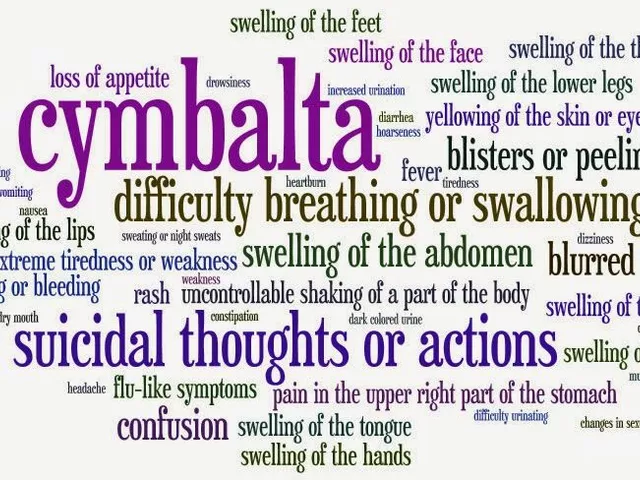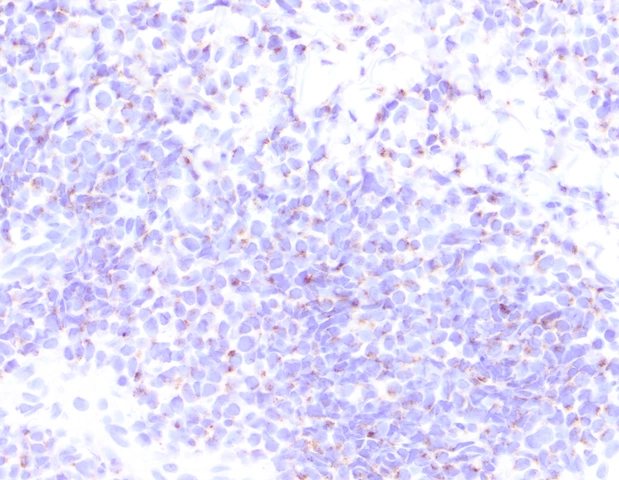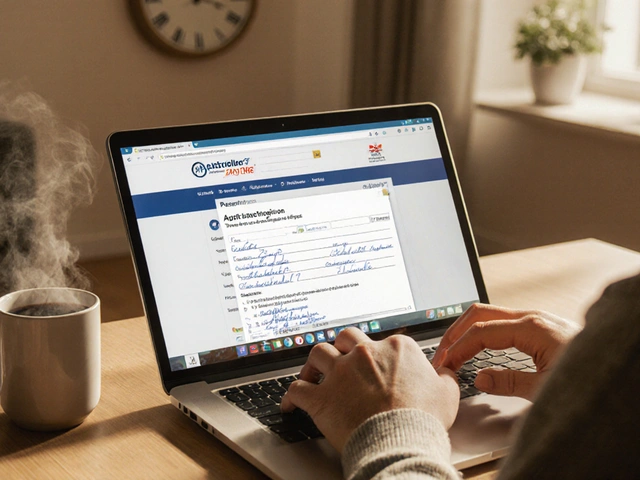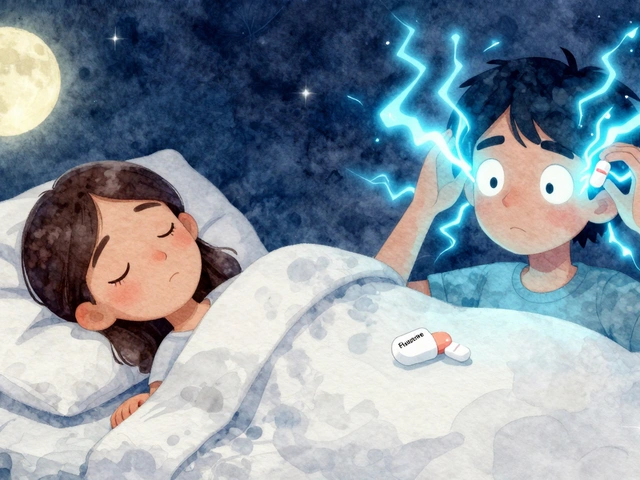 28
Jun,2025
28
Jun,2025
Ever had your head spin like you just got off a wild carnival ride? That’s vertigo, and it can knock the wind out of your daily plans in seconds. For a lot of people, Meclizine is like that reliable friend who holds your hand through the discomfort—quieting spinning rooms, calming queasy stomachs, and making road trips—or boat rides—bearable. But what’s actually going on inside this humble little pill?
What is Meclizine and How Does It Work?
Let’s start from square one: Meclizine is an antihistamine. That means it’s related to allergy meds, but it plays a much bigger role in the world of queasiness and spinning headaches. Chemically, it’s called meclizine hydrochloride, and you’ll find it in medicine cabinets under names like Antivert, Bonine, and Dramamine Less Drowsy. This isn’t a newfangled remedy—it’s been around since the 1950s, and doctors still trust it for a good reason.
The big draw with Meclizine is its ability to block certain signals in your brain that stir up feelings of dizziness and nausea. Think of your brain as a traffic center, directing signals from your eyes, ears, and balance centers. Sometimes, the messages get mixed up—like when you’re looking out a window on a spinning boat. Meclizine steps in and helps smooth those crossed wires, making the world stop tilting. That's why it's a staple for motion sickness, vertigo, and even some inner ear conditions.
By binding to H1 histamine receptors in your brain, Meclizine tamps down those messages that cause you to feel sick or off-balance. Since it’s a first-generation antihistamine, it also slips through the blood-brain barrier, which is how it settles things so effectively in your vestibular system. But that’s also why it can make you drowsy—it’s acting right in your brain’s control tower.
People often use it for reasons like:
- Battling motion sickness during car, air, or sea travel
- Managing vertigo caused by benign paroxysmal positional vertigo (BPPV) or labyrinthitis
- Relieving nausea and vomiting linked to balance disorders
One cool fact? Meclizine doesn’t just mask symptoms. It helps calm that storm in your inner ear—the labyrinth—where your balance is sorted. That means fewer embarrassing moments of stumbling around grocery aisles or clutching railings when you stand up too fast.
You’re not alone if you reach for it before a cruise or a long road trip. A CDC report spotted Meclizine on “most prescribed” lists for travelers heading to rougher seas, and it remains the go-to in first aid kits for folks who work offshore, fly small planes, or work on ships. The pills are usually chewable or easy to swallow, so you don’t need to fuss too much when a wave of nausea is incoming.
There are a few quirks worth mentioning. Meclizine kicks in about an hour after you take it, and its effects stick around for 8 to 24 hours—plenty long to get you through most journeys or wobbly spells. Compared to older motion sickness meds, it causes less drowsiness, but you still shouldn’t try to ace a calculus test or operate an excavator right after popping a tablet.
When and How to Use Meclizine for Best Results
The trick with Meclizine is timing. Don’t wait until you’re clinging to the ferry railing—the pill isn’t a magic rewind button. Take it about an hour before you hit the road, sky, or sea. This gives your body enough time to absorb the medicine and start blocking those mixed-up balance signals.
For grown-ups and kids over 12, doctors usually suggest 25 to 50 mg. (That's one or two regular tablets.) If you’re prepping for a road trip with your teenager, double-check with their doctor—kids under 12 usually need something else that’s specially dosed for smaller bodies. And no sharing your pills; everyone’s medical needs are different.
The nice thing is, Meclizine doesn’t have to be taken with food, but washing it down with water helps. People with sensitive stomachs might avoid taking it on an empty tummy—the mild nausea from the medicine isn’t a welcome travel buddy. You can take another dose every 24 hours if you’re still under the weather, but don’t stack doses without your doctor’s green light.
Here’s a handy chart for typical use, though always follow your own doc’s advice:
| Age Group | Common Dose | When to Take |
|---|---|---|
| Adults | 25-50 mg | 1 hour before travel or once daily |
| Children (12+) | 25-50 mg | 1 hour before travel or once daily |
For sudden spinning spells (like vertigo), your healthcare provider might tell you to use it at the first sign of trouble. Folks with chronic dizziness usually get directions for daily use for a limited time—never as a “forever” cure.
Don’t mix Meclizine with alcohol or recreational drugs—those will crank up any drowsiness, and suddenly, that party cruise won’t feel very fun. If you’re on sleeping pills, anti-anxiety meds, or other sedating drugs, tell your doctor. Meclizine can pile on extra drowsiness in ways you might not expect.
If you're worried about popping a pill, chewable tablets taste a bit chalky, but most people find them way easier than swallowing something dry. Want a bonus tip for parents? If your teen is a drama king or queen about ‘gross’ medicine, sneak the tablet into flavored applesauce if you get the green light from their doc.

Side Effects, Precautions, and Who Shouldn’t Use Meclizine
No medication is perfect. The most common Meclizine side effect is drowsiness. You might also feel a bit dry-mouthed, slightly blurry-eyed, or constipated if you use it for more than a day or two. For some, the drowsiness isn’t just about wanting to snooze—it can make you less sharp. That’s why you should skip using it if you’re driving heavy vehicles, operating big machinery, or swimming in unfamiliar water (your reflexes just aren’t as quick).
Here's what to look out for:
- Drowsiness
- Dry mouth
- Blurred vision
- Urinary retention (trouble peeing, especially in older guys with prostate problems)
- Constipation
If you notice rash, itching, facial swelling, or breathing troubles, that’s rare but urgent—get medical help right away. Anaphylaxis is uncommon, but you never want to mess around with allergy symptoms.
Pregnant women get special mention. Even though some doctors do recommend Meclizine for nausea during pregnancy, it’s not for everyone. Never self-prescribe during pregnancy—aska healthcare provider first. Young kids under 12 also shouldn’t take Meclizine without a pediatrician’s say-so. For elderly folks, that sedative effect can be more pronounced, so get guidance before taking it regularly.
People with certain health conditions need to be careful too:
- Glaucoma (Meclizine can increase eye pressure)
- Enlarged prostate or urinary retention history
- Asthma (sometimes, antihistamines can make symptoms worse)
If you’re mixing multiple medicines, check for interactions. The classic troublemakers? Other antihistamines, antidepressants, anti-seizure drugs, tranquilizers, some anti-nausea meds, and sleep aids. Always run your full medicine and supplement list by your pharmacist or doctor.
Pro tip: Want to avoid the “cottonmouth” feeling? Chew sugar-free gum, drink extra water, or suck on hard candies between sips of water. Make sure you get enough fiber in your meals if you take Meclizine for more than a day—no one signs up for an anti-nausea med just to get hit by the other end of digestive misery.
Long-term or “daily routine” use isn’t the plan with Meclizine. Most people only need it for a day or two. If you’re noticing you need it every day, or the dizziness just isn’t budging, loop in your doctor—this could be a sign of something deeper or a need for a totally different strategy.
Smart Tips and Extra Info to Get the Most Out of Meclizine
Here's the stuff that usually never makes it into drug pamphlets or boring medication guides. If you actually want fewer days derailed by “room spinning” moments or motion-triggered nausea, check these out:
- Pair Meclizine with non-drug tricks. Sit near a window and stare at the horizon on boats, or sit in the front seat when riding in a car. This gives your brain a steady point of reference and makes the drug's job easier.
- Skip rich, fatty, or heavy foods right before travel. Greasy fries and shakes might make Meclizine less effective and stir up your stomach.
- If you wear motion sickness bands (the acupressure wrist kind), using them with Meclizine can sometimes provide double the relief.
- Stay hydrated, but don’t chug water right before popping the pill—it can make your stomach feel sloshy and ramp up nausea.
- Don’t use Meclizine as your go-to for anxiety nausea or hangover queasiness. It really works best for true motion- or balance-based dizziness and nausea, not gut stuff triggered by nerves or last night’s tequila.
- Track your triggers in a journal. Were you reading in the back seat too long? Did the dizziness hit after skipping breakfast? Picking out patterns means you might be able to avoid episodes altogether, or use Meclizine more strategically.
- For those with chronic vertigo or Meniere’s disease, Meclizine may be paired with specific vestibular rehab exercises. Research from the University of California, San Francisco, shows that combining the two helps many people manage dizziness better than medication alone.
- If you have a friend or family member prone to motion sickness, pack extra Meclizine in your bag when you travel. Just make sure everyone takes only their recommended dose.
- Store Meclizine away from heat and sunlight. The active ingredient can break down—and suddenly the “magic” isn’t so effective anymore.
- If you're an athlete, check sporting regulations: Meclizine isn’t considered a performance enhancer, but always make sure it’s on the “OK” list for your sport’s competitions.
And if you’ve tried Meclizine but your symptoms are stubborn, don’t keep upping your dose or adding random motion sickness meds. That can backfire fast. Your doctor might want to run more tests to rule out other causes like migraines, low blood pressure, or even sinus infections.
Want to keep your balance system happy in everyday life? Stay active, keep hydrated, and try head-turning exercises that help your brain adapt, especially if you’re prone to repeated dizziness. A few weeks of vestibular rehab can actually train your balance system to “ignore” the wrong signals and cut down episodes long-term.
Meclizine is an old-school remedy that has stood the test of time—not just a quick fix for bumpy rides but a way to claim back your freedom from the spinning-room blues. Like any medicine, it works best if you respect its power, time your doses, and recognize when to ask for more help. No need to dread your next trip; with the right steps, you’ll have solid ground under your feet—no matter where your next adventure takes you.






Wow, Meclizine is way more complicated than most people think. It’s not just a quick fix for dizziness or nausea, you know? I’ve seen so many folks misuse this stuff because they don't realize the potential side effects, and honestly, some of those side effects can be pretty serious!
For one, Meclizine can cause drowsiness so intense that it might impair your ability to do everyday tasks. Like, don’t even think about driving after taking it. Also, in some cases, people report dry mouth and blurred vision, which can be super annoying and dangerous if you’re on your feet all day.
Seriously, I can’t stress enough: always check for interactions. If you’re on any other meds, it could get ugly. It boggles my mind how casually this drug gets passed around without people knowing the real risks. And pregnant women or folks with certain medical conditions definitely need to steer clear or at least chat with a doc before using it.
So yeah, if you’re thinking of popping Meclizine, educate yourself fully and be cautious. This isn’t candy, despite what some might say!
Hey, Brenda, you made some solid points there. From my experience working in healthcare, I’ve seen Meclizine help a lot of folks struggling with inner ear issues and vertigo. It’s definitely effective if used right.
That drowsiness side effect is very common though, so I always advise patients to start with a low dose to see how they handle it. And yes, talking to a healthcare professional before combining it with other meds is a good rule of thumb.
Also, hydration and not combining it with alcohol can make a big difference when it comes to side effects. But I think overall people shouldn't fear it too much when used correctly.
Oh wow, I gotta say I've used Meclizine a couple times after long flights. Those dizzy spells hit me hard!
Honestly, it's been a lifesaver to calm that nausea down. But yeah, the sleepiness hits me like a truck, so I always try to take it only when I know I can rest afterward.
Does anyone else find it kinda weird how some say it dries out their mouth like crazy? Anyone got any tricks to counter that?
Anyway, thanks for laying out the detailed stuff here. Super helpful to know the risks before popping pills.
Thank you for the great overview. In India, Meclizine is often recommended for travel sickness, and it has been a trusted medicine for many. However, access to proper medical information is not always easy to get, so posts like these are very valuable for spreading awareness.
Many patients experience mild side effects, but caution must be exercised especially in elderly patients who tend to be sensitive to the sedative effects.
Moreover, persons with pre-existing conditions like glaucoma should be particularly careful and consult their physicians before using Meclizine.
I would recommend everyone to always read the medication leaflet and never self-medicate without proper knowledge—especially for over-the-counter drugs.
I find it suspicious that Meclizine and other similar meds are so widely prescribed without apparent long-term studies on neurological impact. Honestly, the pharmaceutical industry pushes these drugs to the masses while downplaying side effects or addictive tendencies.
Plus, the fact that it causes drowsiness makes me question if it’s just a mild brain depressant in disguise. Are we really treating symptoms, or just masking the underlying problem to keep people docile?
I've read some conspiracy forums claiming that these drugs have hidden ingredients to subtly alter brain chemistry. It may sound paranoid but we have to be critical about what we put into our bodies and question the motives behind mass production and distribution.
Anyone else think this deserves much more scrutiny?
Totally agree with you on the shady aspects! It's like Big Pharma is giving us a sedative disguised as a medicine for dizziness. How many of us end up more zoned out than better?
And what about the warnings that seem buried in fine print? People with heart problems, seizures, or allergies get the short end of the stick because they might not fit the clinical trial profiles.
I've had friends who became so reliant on Meclizine they didn't want to stop even if it was making them feel worse. This topic needs more attention because the general public is kept in the dark about real consequences.
We should demand transparency and safer, more natural alternatives.
Dawn, while I get your concerns, dismissing Meclizine as just a sedative might be a bit unfair. It really acts as an antihistamine that blocks certain signals causing motion sickness and dizziness. Side effects like drowsiness are known but expected in many antihistamines.
However, like with any medication, risks and benefits must be weighed. I don't see evidence it’s deliberately harmful or something sinister like you suggest.
Medical science isn’t perfect but many drugs including Meclizine have decades of use with known safety profiles. If people misuse or overuse it, sure, that's a problem. But proper use with medical guidance can be very effective and safe for most.
Bringing this back on track, can someone explain why Meclizine is preferred over other meds like Dimenhydrinate? I've always wondered if it's less potent, or just has fewer side effects.
Personally tried both after a bad motion sickness episode and had a different feeling with each, but I'm curious about what the pros and cons are from a medical standpoint.
If any experts here can shed some light, that would be cool.
Good question, John. Both Meclizine and Dimenhydrinate are antihistamines used to control nausea and dizziness, but Meclizine typically has a longer duration of action—up to 24 hours—whereas Dimenhydrinate’s effects last around 4-6 hours.
That means Meclizine can be taken less frequently, which some patients prefer. It is also sometimes reported to cause less sedation, although this varies between individuals.
Medical choice depends on the symptom severity, patient health profile, and desired duration. Always discuss with your doctor before switching medications.
I just wanted to jump in here and say thanks for this thread! Meclizine has been a game changer for my mom’s vertigo. She was honestly skeptical at first, thinking it would make her super groggy and useless, but it helped her function on days she felt like the world was spinning.
Of course, every patient is different, and you definitely need to watch out for side effects—especially if you’re older or on other meds. But overall, Meclizine is a legit helper and not some evil conspiracy.
It’s great to see everyone discussing the realistic pros and cons rather than just fearmongering or blind trust.
Oh brilliant, another post about drug safety on the internet where everyone suddenly becomes a medical expert! Because that never fails to make me feel totally reassured, right?
For real though, it's nice to see actual concerns brought up and some sensible advice sprinkled in between the dramatics. Like yeah, take your meds responsibly and please talk to your doctor instead of relying on Reddit threads—no matter how informative.
Also, shoutout to folks sharing personal stories—makes it less dry and more relatable.
Meclizine’s not some magic pill but it’s a helpful tool when used with common sense.